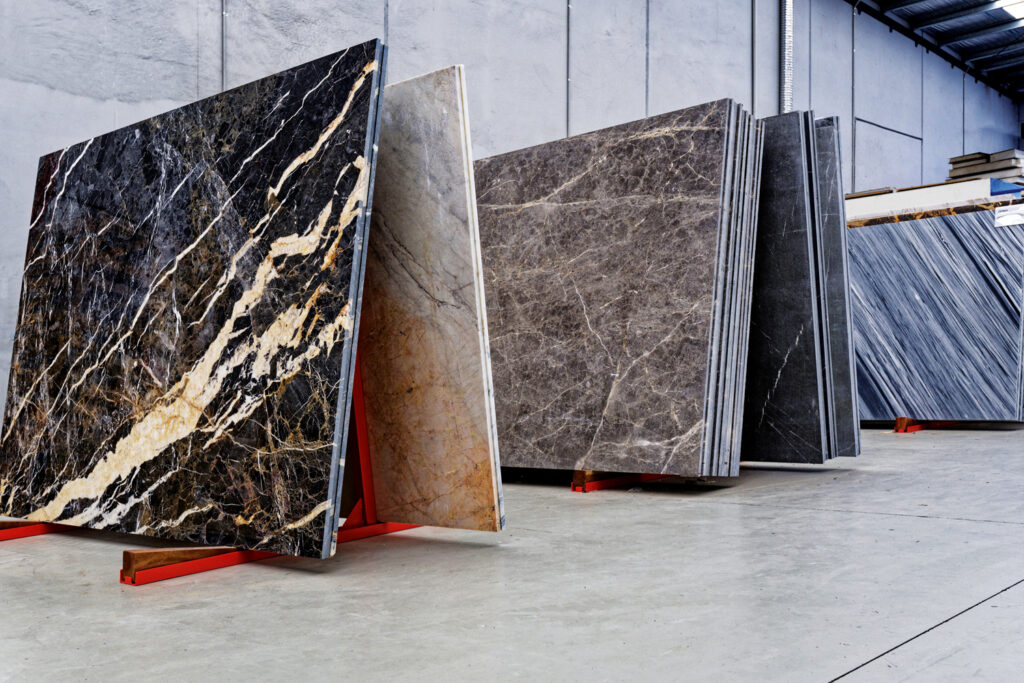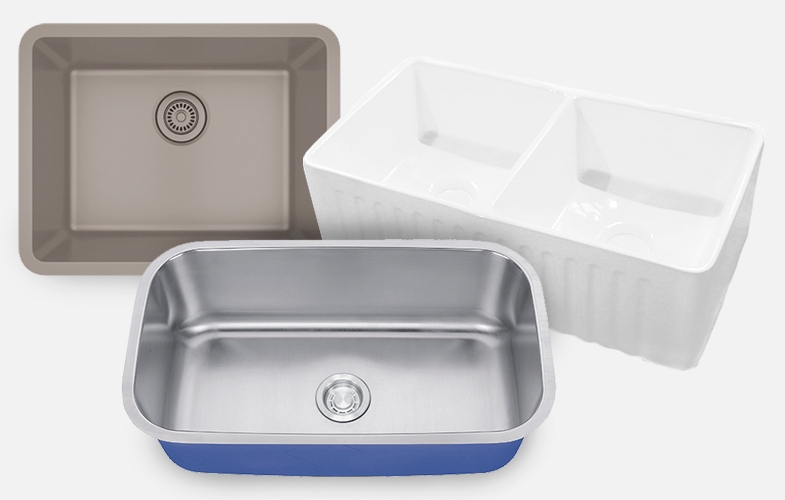PRODUCTS
Quartz countertops have gained immense popularity due to their exceptional strength, durability, and minimal upkeep requirements.
With a vast range of captivating colors to choose from, Quartz offers abundant options for customization. Unlike natural stone countertops, Quartz is non-porous, eliminating the need for sealing. In addition, Quartz countertops are NSF rated, ensuring they meet the highest standards of food safety for preparation areas.
The durability of Quartz is truly impressive, as it effectively resists stains and corrosion caused by cooking oils and liquids, eliminating the necessity for frequent resealing. However, it’s important to note that excessive heat can potentially damage your Quartz countertop, so it is advisable to use trivets or heating pads as precautionary measures.

NATURAL STONE
While both granite and marble (including their counterparts like limestone, onyx, and travertine) are derived from natural stone quarries, they possess notable distinctions. Granite originates deep within the earth’s mantle, subjected to extremely high temperatures, resulting in a remarkably resilient and durable stone comprised of crystallized minerals.
On the other hand, the marble family, including limestone, travertine, marble, and onyx, originates as sediment composed of animal skeletons, shells, plant matter, and silt at the bottom of water bodies. Over millions of years, this sediment solidifies (lithifies) into stone. Due to its calcium composition, marble is susceptible to the effects of acids, such as those found in vinegar and citrus beverages.
Both products are excellent choices for Vanities, Kitchen Countertops, Bathrooms, etc.
Double Bowl, Single Bowl, & Super Single Bowl Styles available in Different Materials & Finishes. Choose from a large selection of sink styles made from the industry leading materials like Stainless Steel, Quartz Composite, Hammered Copper, and Fireclay.

F.A.Q.
Common questions we're asked
Quartz countertops are highly durable and resistant to scratches, stains, and impact. However because they contain polymers that make them nonporous, they can be damaged if exposed to excessive heat.
When considering the options, quartz seems to take the lead. It offers advantages such as easier maintenance, longer durability, environmental friendliness, and customizable features. However, the cost of quartz may vary depending on the chosen options, and the timeless allure of granite still holds appeal for many. Before making a decision, it’s essential to consider your budget and specific requirements. Ultimately, both choices have their merits, and you can’t go wrong with either one. Be sure to research what’s right for you.
Quartz countertops are manufactured by mixing approximately 90-95% ground quartz crystals with resins, pigments, and other additives. The mixture is then compressed under high pressure and cured to create solid slabs.
Quartz countertops have several advantages including the following:
- Durability: Quartz is one of the hardest minerals, making countertops resistant to scratches and chips.
- Low maintenance: Quartz is non-porous, so it does not require sealing and is resistant to stains and bacteria.
- Wide range of colors and patterns: Quartz countertops come in various colors, patterns, and finishes, allowing for versatile design options.
- Heat resistance: Quartz countertops can withstand moderate levels of heat, but it’s still recommended to use trivets or hot pads to protect the surface.
- Consistency: Unlike natural stone, quartz countertops have a consistent appearance throughout the slab, making it easier to match pieces during installation.
In most cases, quartz countertops can be repaired depending on the extent of the damage. Minor scratches and chips can often be repaired by a professional using color-matched epoxy or resin. It’s always best to consult with a professional for proper assessment and repair. Contact us today for a consultation on having your countertops repaired.
